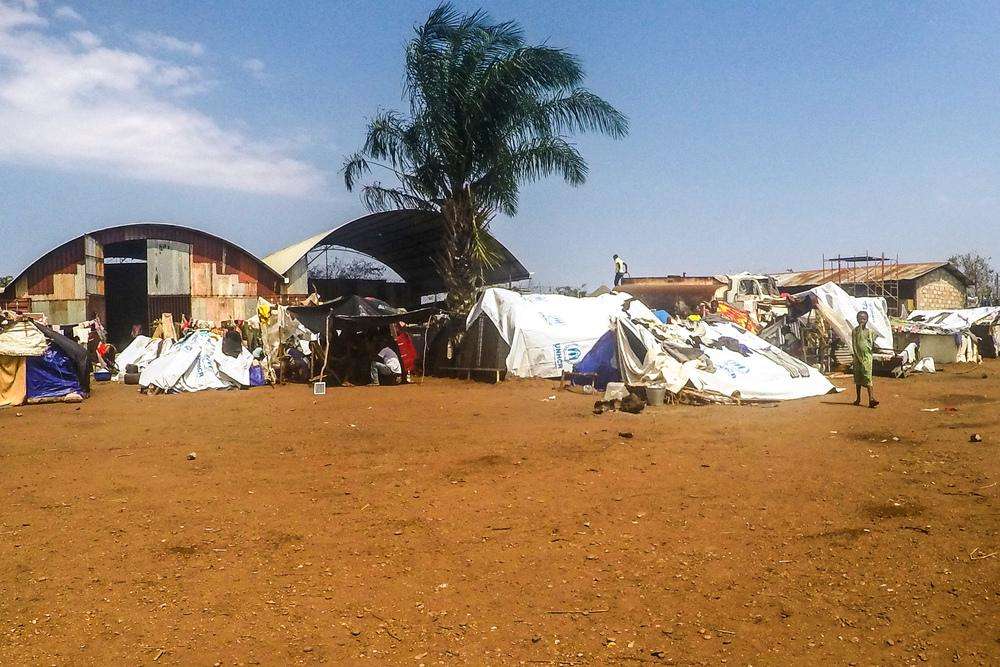In less than a year, the greater Kasai region in central Democratic Republic of Congo (DRC) has transformed from a peaceful area in a troubled country to the epicenter of one of the most serious humanitarian crises in the world. A spark in August 2016—the killing of a local chief by Congolese armed forces—quickly escalated, causing generalized unrest across an area as large as Italy. In response to the conflict, Doctors Without Borders/Médecins Sans Frontières (MSF) has provided emergency and routine medical care to some 4,200 patients in and around Kananga city (Kasai Central Province) and in Tshikapa (Kasai Province).
"We are aware that MSF’s own response remains below what we suspect the needs are, and we are looking at ways to increase our medical and humanitarian response," says Nicholas Papachrysostomou, emergency coordinator of MSF in Tshikapa.
Since May 10, MSF has cared for 198 patients in its emergency department in Kananga, a city of 750,000 people. A third of these were victims of violence. One-hundred seven trauma patients required hospitalization in the MSF-managed trauma wing of Kananga’s general hospital. Half suffered from gunshot wounds, and another 15 percent suffered other violent trauma like knife and machete wounds.
MSF fully rehabilitated the hospital’s trauma wing and increased its capacity from 25 to 49 beds by building a new extension. The service is now fully managed by MSF staff, both international and Congolese, as a self-contained, independent structure within the public hospital. All medical services provided by MSF are free of charge.
Addressing the Needs
"The agreements between MSF and the [Congolese] Ministry of Health state that the hospital and mobile clinics are solely managed by MSF," explains MSF deputy head of mission Barbara Turchet. "Medical services are based exclusively on medical needs, as assessed by medical professionals. Strictly no weapons, be they from individuals or official armed forces, are tolerated inside the facility. No patient can be arrested while inside the medical facility or during a referral. MSF ensures strict medical confidentiality, as per the medical ethics."
MSF has also been working in the urban part of Tshikapa since the second week of June, supporting three health centers and one hospital in different areas of the city. MSF provides medical and humanitarian assistance to susceptible groups in the area, such as children under five years old, pregnant and lactating women, the wounded, and those in medical and surgical emergency situations.
From June 8 to July 2 MSF also treated 266 malnourished children in one inpatient and two outpatient therapeutic feeding centers in Tshikapa. The teams have carried out 787 consultations for children under five years old, assisted 120 births, treated 45 people for conflict-related injuries—including four children with gun wounds and 10 children with machete-inflicted injuries—and received five survivors of sexual violence.
MSF also operates a mobile clinic in Kananga and three around the city that have to date provided 2,757 medical consultations to people who fled their homes and are living in the bush. This week, MSF teams also started medical activities in the periphery of Tshikapa city.
Tending to the Displaced
MSF teams also care for Congolese refugees in Angola’s Dundo Province, where for the past three months teams have been working in two refugee camps, Mussengue and Cacanda, which host more than 27,000 refugees from Kasai. MSF set up two clinics, where they have already performed more than 12,000 medical consultations, and also supports the pediatric hospital (focused on malnutrition among children in both host and refugee communities and severe adult patients). MSF recently finalized a vaccination campaign to immunize more than 5,000 children against measles, yellow fever, polio, and other diseases. Teams also provided safe water and began construction of latrines, though water and sanitation remains a challenge.
MSF has been working consistently in DRC for 35 years, providing health care to victims of conflict and violence, displaced people, and those suffering from epidemics. It is currently present in 11 provinces across the country.
The organization has worked in the greater Kasai Region on several occasions, including responses to two Ebola outbreaks in Kampungu in 2007 and 2008, bringing assistance to migrant workers expelled from Angola in 2007, and conducting emergency vaccination campaigns.




